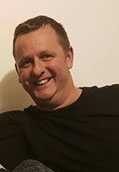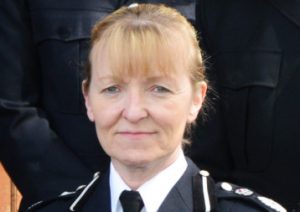Are sickness absence policies in policing counterproductive to the welfare agenda?
by Gavin Hales
Senior Associate Fellow, The Police Foundation
Last year, I asked if a mental health dam in policing is starting to crack, highlighting the findings of two pieces of research, respectively by the Police Dependents’ Trust and Police Federation for England and Wales, which laid bare the extent of mental health issues experienced by those working in policing.
Today there’s a welcome and growing focus on the welfare and wellbeing of the police workforce, with some important looking initiatives being developed including Oscar Kilo and a national police welfare service (if the pilot is a success). In September the Police Federation launched a ‘nine-point stress plan’ intended to help forces better prioritise officer welfare, and then earlier this month the police minister Nick Hurd MP chaired a roundtable on police wellbeing, both of which have given the issue greater prominence.
It’s not entirely clear what the catalyst has been for this shift, although the end of performance targets in policing has certainly created the space for different conversations about police priorities, leadership and ‘what’s important’. At the same time, the cloud of stigma around mental illness has started to lift in policing, reflecting changes in wider society.
More generally, the combined pressures of austerity and changing demand have increased workloads – especially of highly emotionally demanding work such as public protection. As the research findings mentioned above attest, these processes have been taking a toll that cannot be ignored.
It is also suggested that some responses to austerity, such as closing canteens and single crewing, may have had unintended consequences, including weakening the scope for informal peer support. I’m also told that at least some Forces have cut their welfare services, which amongst other things means that officers and staff requesting support are apparently having to wait longer to get it.
One area that seems perhaps not to have moved with the times is Force HR policies around sickness absence, in particular where someone taking a number of periods or days off work for sickness in a year may be subject to Unsatisfactory Performance or Unsatisfactory Attendance Processes (UPP or UAP) and may even become automatically ineligible to apply for promotion or transfers to other roles the following year. If I have understood the process correctly from descriptions provided by serving officers – and I appreciate it is likely to vary between Forces – these are often default HR policies that line managers or supervisors have discretion to set aside but generally do not (HR are the experts, right?).
There are difficult balances to be struck. While it is of course entirely understandable that employers want to deter abuse of sickness benefits and maximise workforce productivity, especially when paid for from the public purse, I can’t help wondering if these processes are designed – or at least applied – backwards, and may in some cases be counterproductive:
– Backwards, because they seem to be opt-out systems for line managers and supervisors, risking lots of genuine cases being caught up in default UPP/UAP, rather than opt-in for those where there are particular concerns, for example that someone may be ‘playing the system’ and taking sick leave when they are not in fact ill. One officer with long-term PTSD recently described to me their frustration that four short periods of illness in the last year (three unrelated to their PTSD) were being responded to with a meeting called by HR, focusing on a handful of days away from work rather than all the time they had been productive despite their work-related mental health difficulties. Amongst other things, these processes may have important consequences for perceptions of fairness at work (and therefore ‘organisational justice’).
– Counter-productive, because serving officers tell me that they encourage people who are ill to take annual leave or go to work, risking both their own health and that of their colleagues and accordingly a net cost to both individual and workforce productivity. I know from my own experience, for example, how important a few days off can be to deal with an episode of stress or anxiety, and conversely how unhelpful ‘struggling on’ can be.
Last year’s Welfare Survey by the Police Federation for England and Wales – specifically the officer absence behaviours report – sheds some useful light on the way these processes may be impacting on the workforce, highlighting the frequency of both ‘presenteeism’ (90% of respondents had turned up for work when ill in the previous year) and ‘leavism’ (59% had used annual leave to mask a period of physical illness, 42% psychological illness). Neither seem to be signs of a ‘healthy’ approach to sickness management and welfare, although I acknowledge that they may partly reflect individual values and wider cultural factors, for example the commitment of individual officers to the police mission and their loyalty to colleagues.
Most police officers and many police staff do difficult jobs that can often be physically and emotionally demanding and at times take a heavy toll on their physical and mental wellbeing. If the current focus on welfare is to make a meaningful difference, it seems reasonable to think that it needs to extend beyond support services – as vital as they are – into the tangled fabric of Force policies, practices, values and cultures. A review of HR policies relating to sickness absence might be a good place to start. ∎
This article originally appeared on the Police Foundation website – it is reproduced here with kind permission of the author

 By way of introduction, many people know me as an “autistic officer”. That isn’t meant in any disparaging way, how could it when I often call myself this! I want to use my position as an autistic officer in a positive way to promote the fact that with the right support, people can get on in this organisation. When I started as a police officer in 1988, I didn’t actually know that I was “disabled”. Even when I found out I was autistic, I was surprised to learn that the condition is considered a disability, because for me it is just part of who and what I am. I really only ever use the word disability now because it’s the lawful way to categorise me.
By way of introduction, many people know me as an “autistic officer”. That isn’t meant in any disparaging way, how could it when I often call myself this! I want to use my position as an autistic officer in a positive way to promote the fact that with the right support, people can get on in this organisation. When I started as a police officer in 1988, I didn’t actually know that I was “disabled”. Even when I found out I was autistic, I was surprised to learn that the condition is considered a disability, because for me it is just part of who and what I am. I really only ever use the word disability now because it’s the lawful way to categorise me.